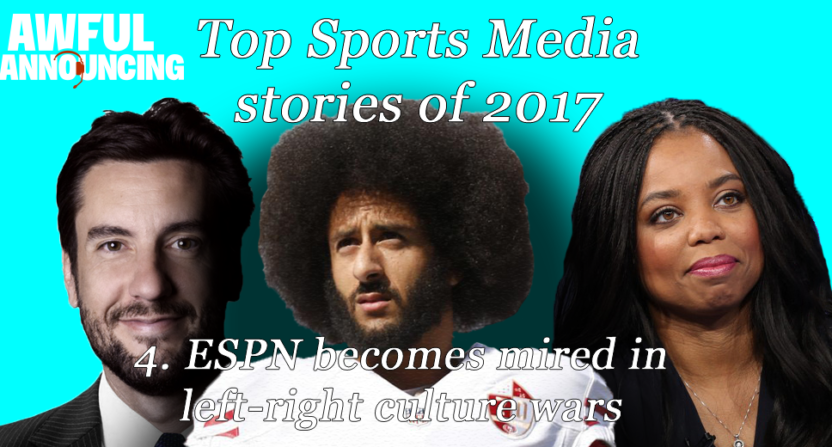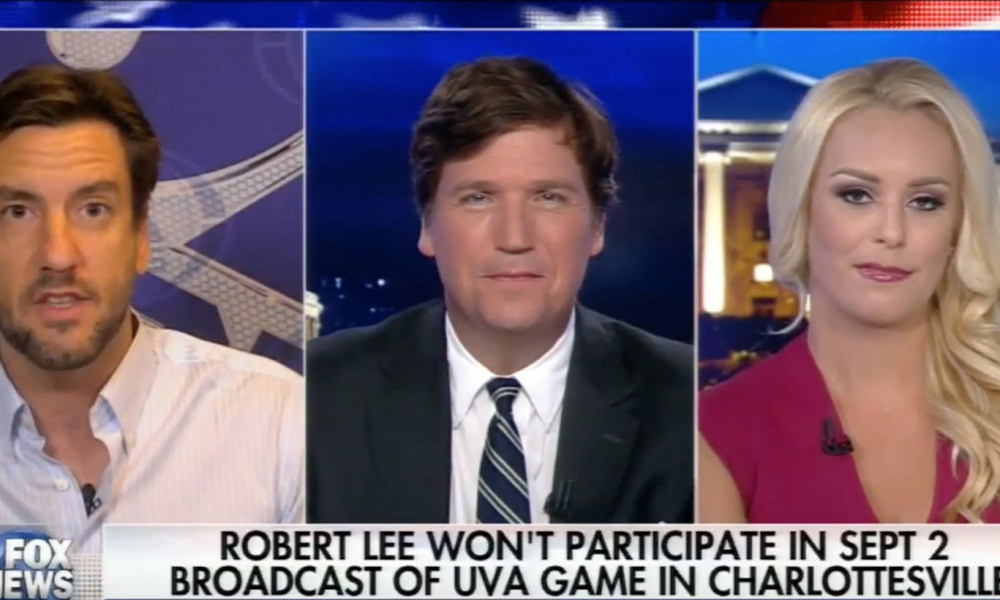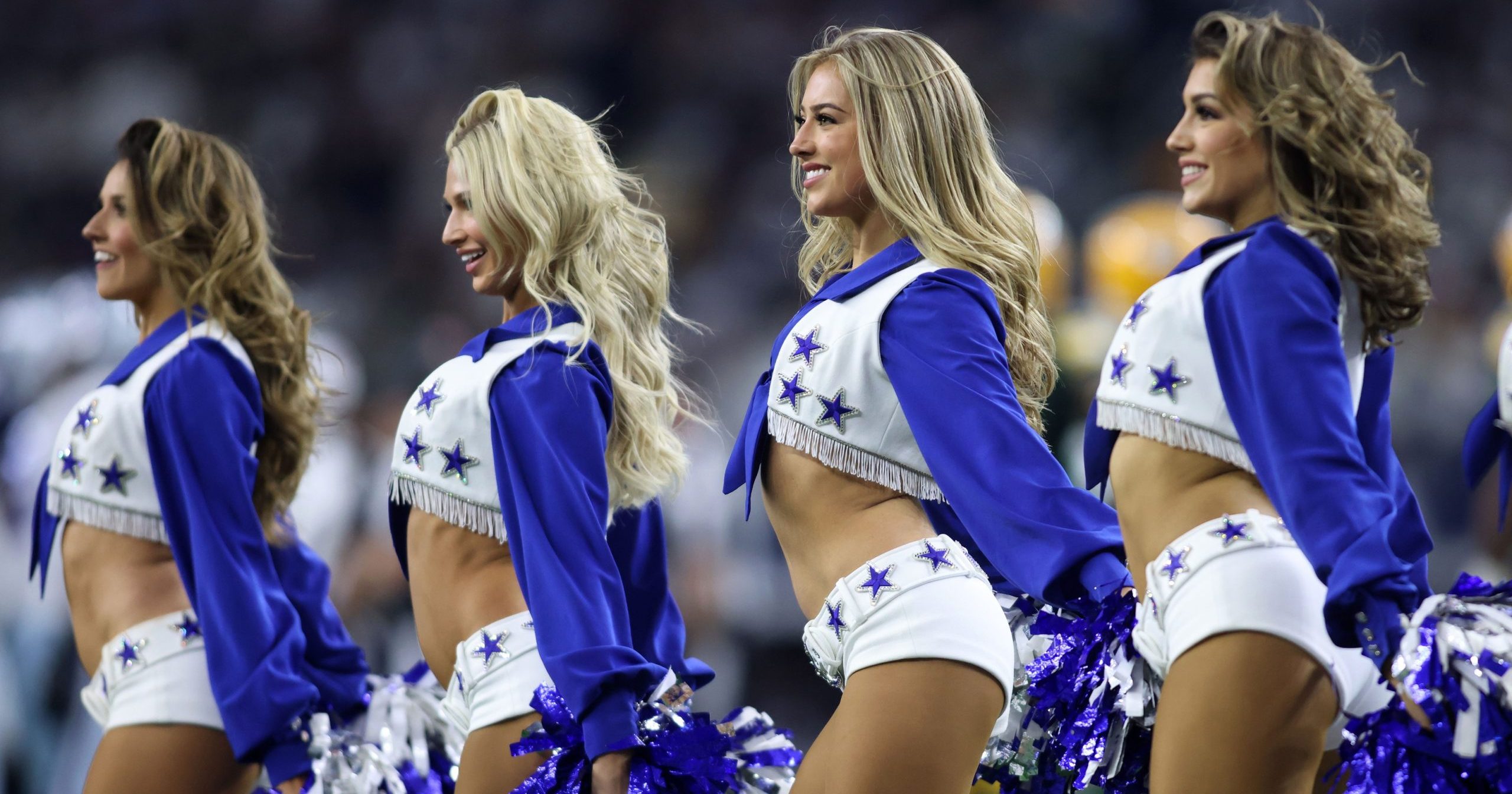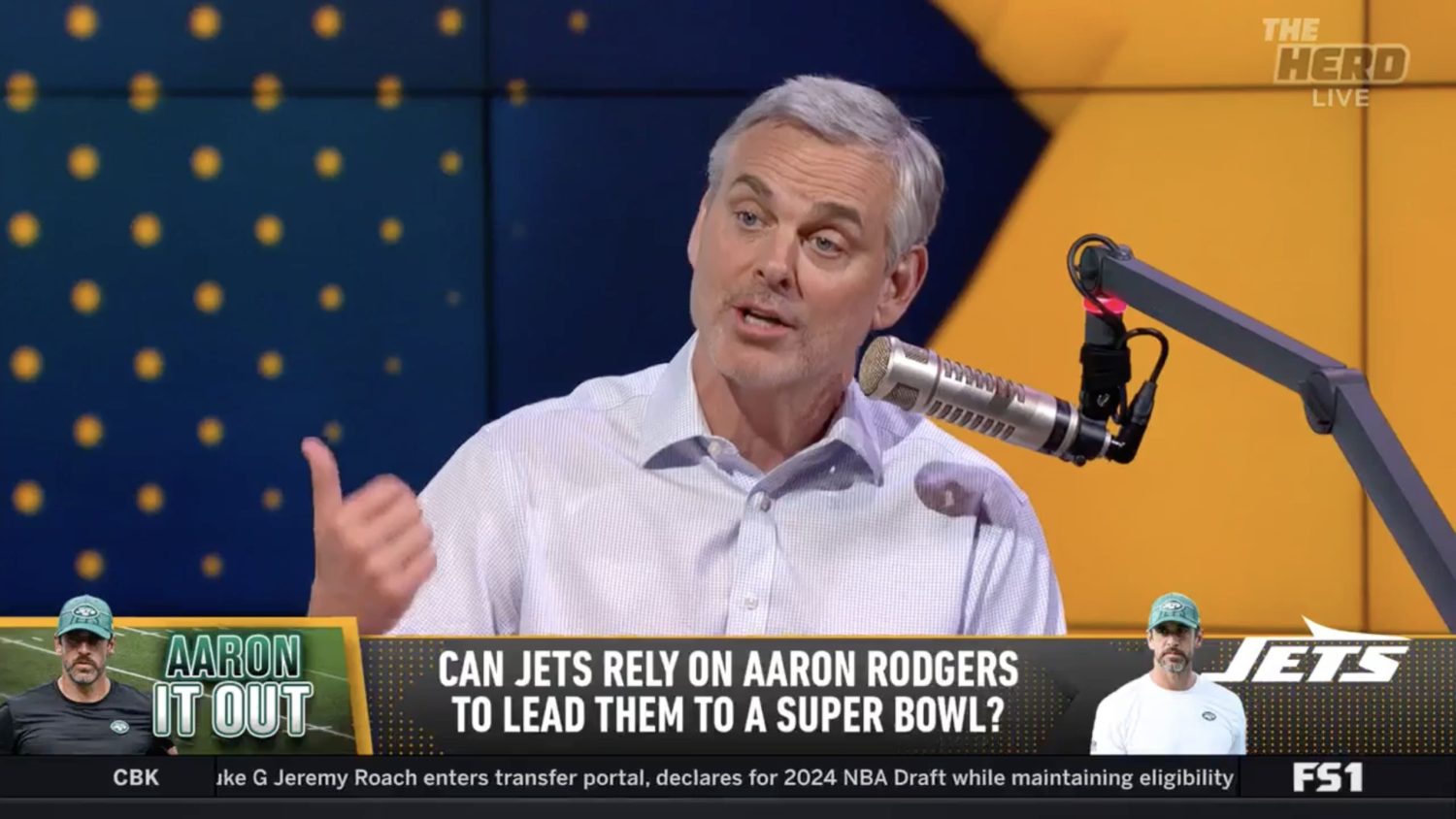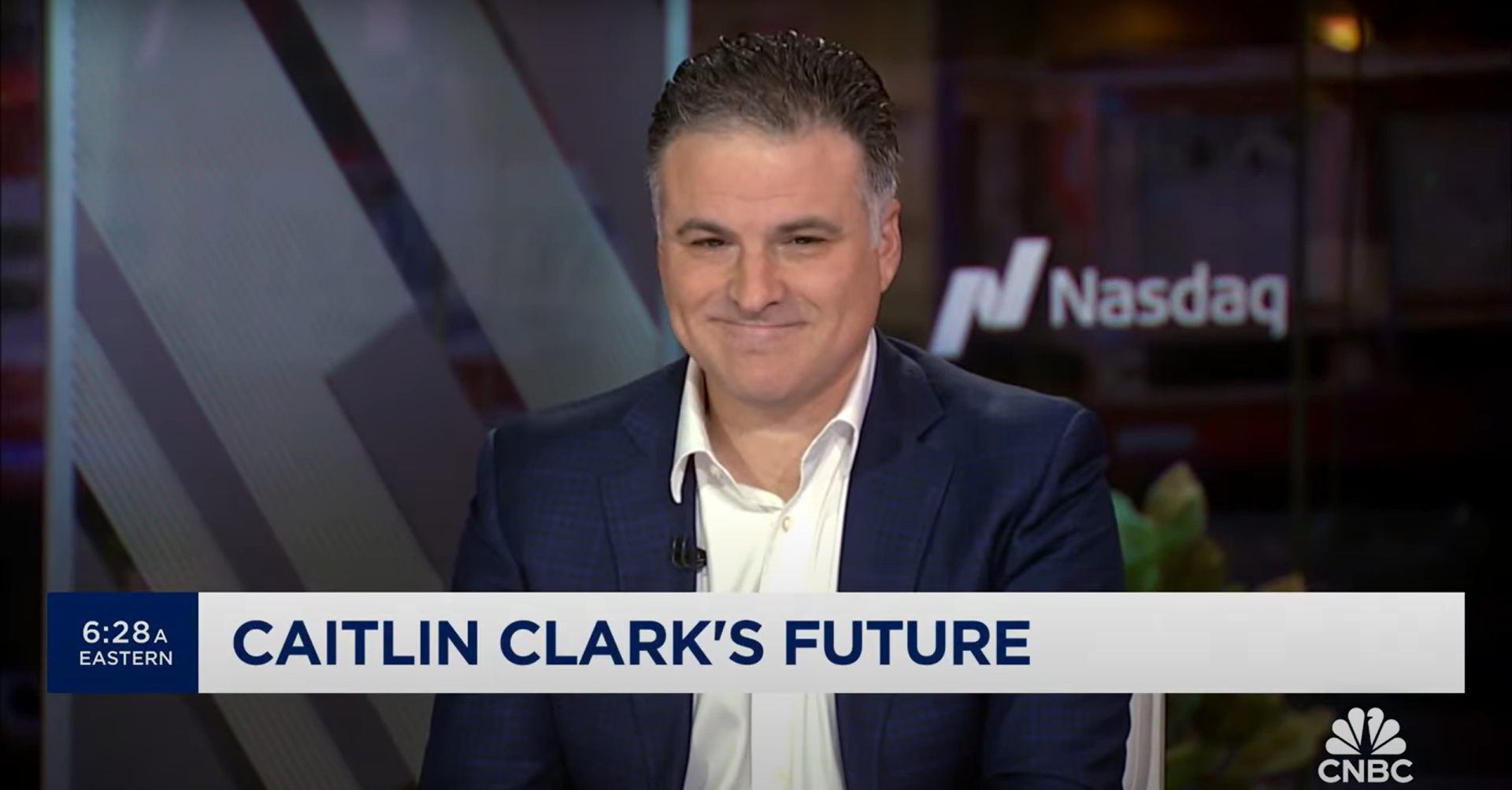If 2016 was the year that sports and politics collided head on, with Colin Kaepernick’s protest and various athletes’ admonishments of Donald Trump, 2017 was the year that trend met fierce and full-throated backlash.
And for much of 2017, that backlash centered on ESPN. Clay Travis became a household name largely by bashing the network. SportsCenter anchor Jemele Hill found herself embroiled in a controversy that rose all the way to the White House. The game assignment of a previously unknown college football announcer became a referendum on political correctness. This year, it was difficult to discuss ESPN without taking a side on issues having little to do with sports.
ESPN’s unwanted role in the country’s endless culture wars owed partly to inevitable tides, partly to genuine company priorities and partly to ham-fisted decisions by management. Those factors and more ended 30-plus years of ESPN existing above the political fray and ushered in an era in which everything about the network is seen through a prism of partisanship.
The most common evil ascribed to ESPN is “liberal bias,” a force that allegedly manifests itself through personnel decisions, coverage of activist athletes, award-show honors and more. Whether or not ESPN actually tilts left is a complex question clouded by the personal biases of the person asking it. But many, many sports fans certainly think ESPN is slanted, which creates a thorny problem for the network.
The latest
Most media analysts were resolute that ESPN’s money problems owed above all to the cord-cutting plague affecting the entire cable TV industry, but the narrative of ESPN’s liberal bias had become accepted truth among many right-of-center viewers. ESPN had taken its place, for those viewers, among other “mainstream media” outlets that weren’t to be trusted.
Five months after the layoffs, ESPN’s political powder keg exploded when Hill, a frequent target of conservative ESPN critics, tweeted that Donald Trump was a white supremacist. ESPN reprimanded Hill for the remarks, which enraged liberals who wanted the network to support her and enraged conservatives who felt ESPN should have suspended or even fired her. Asked about Hill’s comments, White House press secretary Sarah Huckabee Sanders suggested the anchor deserved to lose her job. Amid the saga, Trump himself declared that ESPN was “paying a really big price for its politics.” Suddenly, ESPN’s alleged bias was national news.
ESPN is paying a really big price for its politics (and bad programming). People are dumping it in RECORD numbers. Apologize for untruth!
— Donald J. Trump (@realDonaldTrump) September 15, 2017
Before that controversy even had time to blow over, Hill was suspended two weeks for wondering on Twitter whether NFL fans should boycott Dallas Cowboys sponsors over owner Jerry Jones’ hardline stance against player protests. As some Americans fumed over the suspension and others celebrated, Trump blamed Hill for ESPN’s supposedly tanking ratings.
The entire Hill saga might never have happened if not for Clay Travis, the Nashville-based radio host and writer who stoked the backlash on Twitter, on his site and on TV. For several years, Travis has cultivated the narrative that ESPN is failing due to its politics, and in 2017 he mobilized his followers against the network whenever given the chance. No one in sports media did more to spur anti-ESPN sentiments, and no one in sports media benefited as much from them.
One of Travis’ most successful assaults on ESPN came in August, when he reported that the network had moved college football play-by-play announcer Robert Lee off a game in Charlottesville, Virginia, site of a recent white supremacist rally, because he shares a name with the former Confederate general. The story went viral and immediately became a Fox News talking point. To Travis and others, it was an obvious example of political correctness run amok. At the least, it was an odd decision that invited controversy in an attempt to avoid it.
If the Robert Lee fiasco was one unforced error on the part of ESPN, Barstool Van Talk was another. With eyes on Barstool’s rabid young audience, ESPN enlisted internet celebrities Big Cat and PFT Commenter to host an eccentric weekly show on ESPN2. But the program lasted only one week before ESPN president John Skipper canceled it amid outrage (including among ESPN personalities) about Barstool’s attitude toward women. In the end, Barstool-haters were left upset that Van Talk had ever existed, while Barstool-lovers were indignant that the show had been canceled. Again, ESPN had managed to frustrate all sides.
Though ESPN seemed to make enemies across the political spectrum, it was mostly conservatives who threatened to boycott the network and celebrated its alleged demise. Some of the right-wing anger directed at ESPN this year was an inevitable byproduct of the Trump era, in which many Americans could find liberal bias on the Food Network. Some of it owed to editorial decisions surrounding politically fraught issues such as NFL player protests. And some of it rose from the clunky way ESPN handled its various controversies.
A chunk of that anger also seemed to result from the network’s stated desire to amplify the voices of women and racial minorities. Whether viewers object to the principle of diversity or simply to the perspectives that sometimes come with it, there’s a noticeable pattern in the commentators some ESPN-haters cite as evidence of the network’s bias.
As Hill told Awful Announcing in July: “I notice those accusations seem to become more intense as you’ve seen more people of color, more women, more diversity in our network in very key positions. Some people, when they accuse us of that, they’re really saying that ESPN has become this liberal network because they’re promoting more black people and more people of color.”
Official @ESPN Racist List 🔽
1️⃣ Jemele Hill
2️⃣ Stephen A. Smith
3️⃣ Bomani JonesAm I missing anyone?
— CHIZ 🇺🇸 (@CHIZMAGA) September 30, 2017
Reasonable minds could spend hours debating exactly what cocktail of factors led to charges of bias against ESPN, but the end result is abundantly clear: all things ESPN are now ascribed a partisan motive, one way or another.
Was bringing back singer Hank Williams Jr. an olive branch to conservatives? Was Britt McHenry fired for her politics? Is Will Cain a token Republican? Do declining Monday Night Football ratings mean America is tired of activist athletes? Was Van Talk an attempt to counter the narrative of liberal bias at ESPN? Did canceling Van Talk reveal the network’s true nature?
The whole line of conversation can be exhausting, but it’s sure not going away. ESPN has officially been politicized, and at a time when every aspect of culture serves as a proxy war for partisan politics, the network will remain under a microscope in 2018 and beyond. That means more partisan anger, more potshots from Clay Travis and others and more controversies that make ESPN long for the days it was known merely as a sports network.

